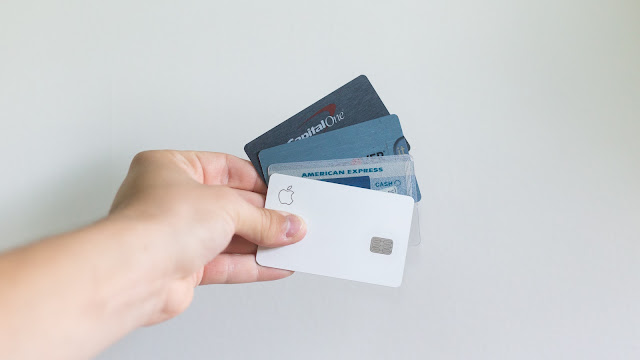 |
| Photo by Avery Evans on Unsplash |
There are over 365 million active credit card accounts, and the average US household has $5,300 in credit card debt. Credit card debt isn't necessarily bad - even any type of debt should be managed carefully - there are several pros to having money on a credit card.
The amount of money a lender is willing to give you - otherwise known as a credit limit - will depend on your credit score. Your credit score is something you build up over time as you begin to take out credit, which is one of the reasons why a credit card is a good investment.
That soon changes if you don't follow the rules of owning a credit card. Below, we'll explore what rules you need to follow when using a credit card.
Rule #1: Pick The Right Card For Your Needs
There isn't a one size fits all credit card. There are different types of credit cards and offers available to people with the right credit score. For example, you can have a credit builder credit card, balance transfer cards, or low-interest cards.
Which card you select will depend on your needs. If you want a credit card to have some fallback money to rely on, a low-interest card or even a credit builder card would be wise.
People with a poor credit score and looking to improve it should also look for a credit builder card. Chances are, someone with poor credit wouldn't get accepted for any other card.
Rule #2: Don't Miss Your Payments
Missing payments is a big no-go when bearing the responsibility of having and using a credit card. Missing your payments can result in detrimental damage to your credit score.
To classify as a late or missed payment in the US, it has to be 30 days after the due date, which differs from countries like the UK, France, and Spain. In the UK, a late payment is recorded as soon as the day after someone misses a payment.
In the US, however, people have 30 days to try and find the money to pay the fee. The minimum payment is calculated based on the amount of money you've spent on the card and your annual interest rates - it's the minimum amount you must pay each month to avoid fees.
If you're struggling to meet the minimum payment because you have multiple ones due at once, its easy to consolidate your credit card debt and bring everything into one payment. Follow the link for more advice.
Rule #3: Don't Exceed Your Credit Card Limit
Exceeding your credit card limit is a no-go if you want to keep your credit score looking healthy. Your credit card limit is given to you based on the amount companies think is safe to lend you.
The first thing that's likely to happen if you exceed your credit card limit but pay it back straight away is a fee. A credit card balance in arrears for a prolonged period could lead to increased interest rates and or even rejection from future credit card applications.
The most common cause of an exceeded credit limit is failing to pay the minimum payment, which results in late payment fees, and then interest rates taking money from the account that isn't there.
The most common cause of an exceeded credit limit is failing to pay the minimum payment, which results in late payment fees, and then interest rates taking money from the account that isn't there.
People that have reached their credit limit should take care to ensure there is enough money there to cover the monthly interest rate charges and the minimum payment.
Rule #4: Keep Your Credit Utilization Rate Low
Your credit utilization ratio is simply the amount of credit you're using. For example, if you have three different credit cards and two store cards equal to $10,000, and you've spent $1,000 across them all, you're only utilizing 10% of the available credit. As a general rule, lenders like people to use 50% or less of their available credit.
Credit scoring models favor people with a low credit utilization rate because they think they're doing an excellent job at not overspending and have better money management skills than someone close to or has exceeded their credit utilization.
The lower your credit utilization and the higher your credit score, the more likely you'll be accepted for loans and credit cards with lower interest rates, and the more lenders will be willing to give you.
Rule #5: Only Spend What You Can Afford
A simple and conclusive rule - only spend what you can afford. Just because a credit card company gives you a specific amount; doesn't mean you need to splurge it. Any expert will advise that credit cards should either be for building credit by carefully spending small amounts and paying them off or as a last resort if money is short.
The less you use, the less you'll pay in interest, and the smaller the minimum payments will be. Be wise with your spending and only spend what you can afford to pay back.
Credit cards are a lifeline. They're also not to be underestimated by not following the credit card rules. Careful spending and repayment are essential, as is understanding how credit cards work and the specific terms and conditions of your credit card agreement.
Credit cards are a lifeline. They're also not to be underestimated by not following the credit card rules. Careful spending and repayment are essential, as is understanding how credit cards work and the specific terms and conditions of your credit card agreement.
How you use your credit cards will influence your credit score, and your credit score determines purchases like houses, cell phones, and cars.


.jpg)







